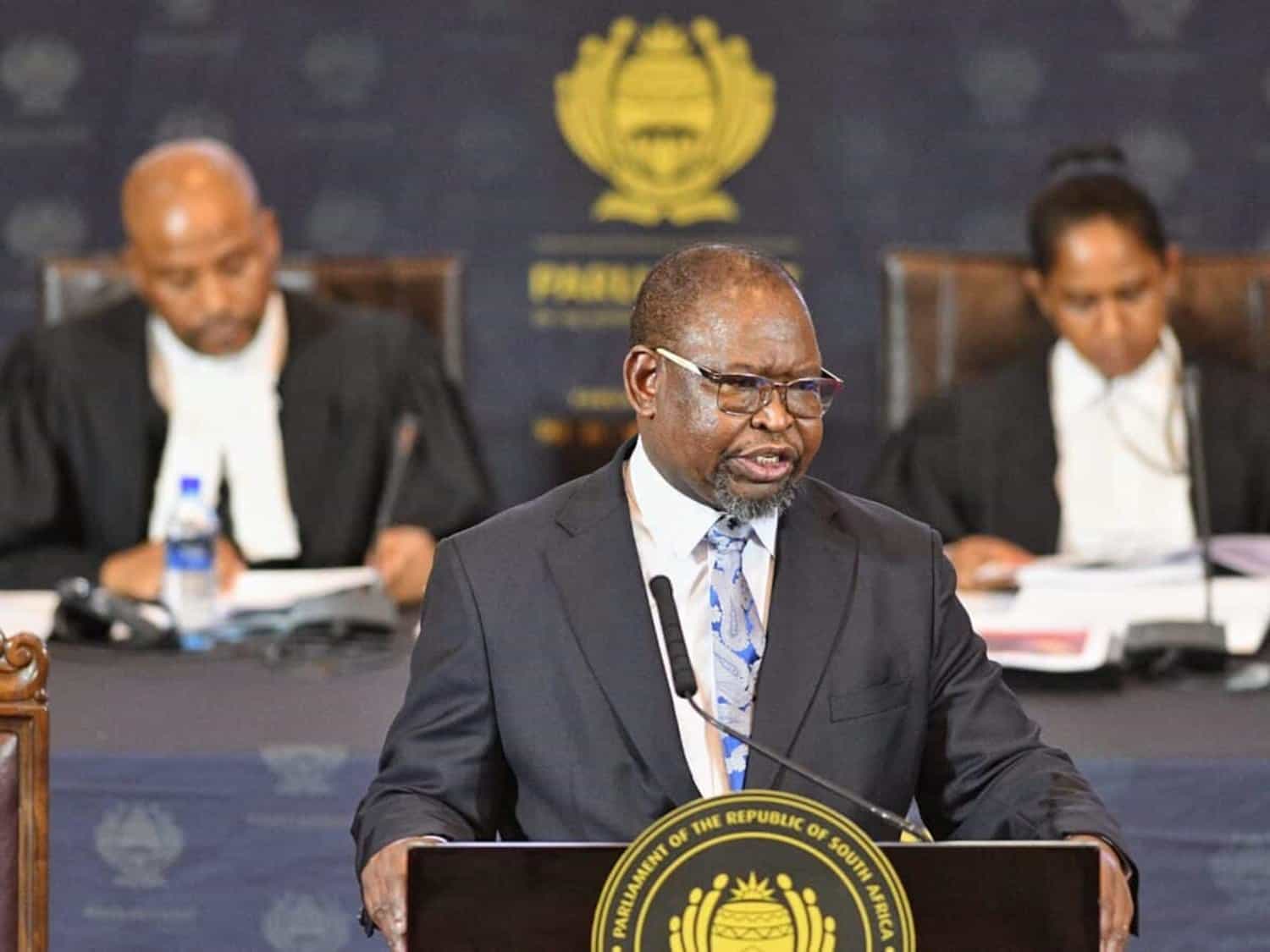South Africa’s GDP only expected to grow by 1.1%, while debt continues to rise.
South Africa’s GDP is expected to grow by 1.1% in 2024, lower than the estimate of 1.3% in February.
Minister of Finance Enoch Godongwana said growth over the medium term is expected to average 1.8%.
While delivering his Medium-Term Budget Policy Speech (MTBPS) on Wednesday, he aired his concerns that debt has risen too fast and too high.
“We are anticipating that government debt will reach more than R6.05 trillion, or 75.5% of GDP, in 2025/26.”
Growth threatened by global issues
Global economic growth is forecast at 3.2% in 2024 and 2025, while global trade is expected to grow by an annual average of 3.3%, however, there are risks.
Godongwana said these included geopolitical tensions and the threat of escalating conflict in the Middle East.
“Wars elsewhere, such as in the Sudan and the conflict between Ukraine and Russia, threaten regional and international stability, as well as global trade.”
Due to these risks, emerging markets and developing countries such as South Africa will continue to face headwinds over the medium term.
ALSO READ: Good news for SA’s economy: GDP increased by 0.4% in second quarter of 2024
How GDP growth will be achieved
Godongwana said the strategy to achieving a more inclusive growth path includes four pillars; maintaining macroeconomic stability; implementing structural reforms; supporting growth-enhancing infrastructure; and building state capability.
He added the government will continue to restructure the electricity supply industry, with the desire to establish a competitive electricity generation market.
“In transport, we will open the freight rail network to private operators to reduce inefficiencies and costs.”
Inflation targets
He said Treasury will continue working with the South African Reserve Bank to assess the suitability of monetary policy targets, and to improve the levers of macroeconomic policy co-ordination.
Through Operation Vulindlela, SA has been able to reduce economic bottlenecks and provide tangible proof that government and businesses can work together.
The first phase of this programme includes a reduction in the waiting period for obtaining a water use licence, from almost a year to 90 days; and the introduction of an eVisa system to travellers from 34 countries.
ALSO READ: MTBPS: can we hope for more money to stop corruption?
Debt warning
Godongwana explained that the country’s debt is unsustainable because debt-service costs have become the largest component of spending and it is rising faster than economic growth.
“Debt-service costs will reach R388.9 billion in the current financial year. Put differently, this means for every one rand of revenue that government raises this year, 22 cents of this is paid in debt-service costs.”
Plans to deal with debt
He added they have taken steps to reduce the budget deficit, which has led to them restraining spending and maintaining stable tax collection.
“As a result of our measures, the government achieved a primary budget surplus in 2023/24, for the first time in 15 years. As I said earlier, the surplus is needed for us to stabilise debt.”
He explained the primary surplus as the difference between what government spends, excluding the debt-service costs, and what government collects in revenue.
They are expecting the main budget deficit to decline from 4.7% of the GDP in 2024/2025 to 3.4% in 2027/2028 over the medium term.
“The primary surplus will be sufficient for debt to stabilise at 75.5% in 2025/26.”
NOW READ: Minister Godongwana’s budget update sparks hope for economic improvement
